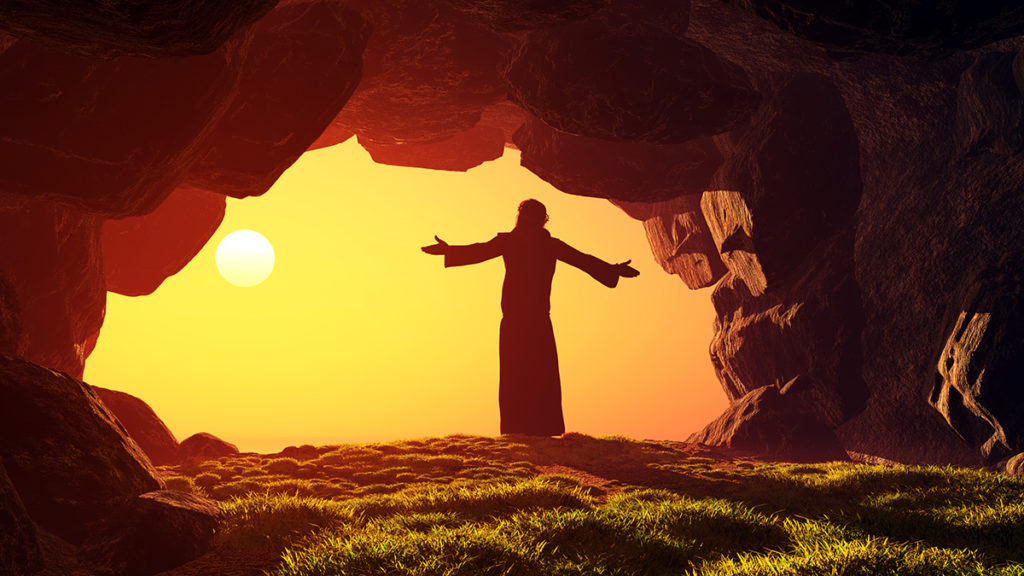Seventh Sunday of Easter, Gospel Year A
Let God Rise Up
Psalms 68:1-10, 32-35
Seventh Sunday of Easter
Analysis by Marcus Felde
Psalm 68
To the leader. Of David. A Psalm. A Song.
Let God rise up, let his enemies be scattered; let those who hate him flee before him.
2 As smoke is driven away, so drive them away; as wax melts before the fire, let the wicked perish before God.
3 But let the righteous be joyful; let them exult before God; let them be jubilant with joy.
4 Sing to God, sing praises to his name; lift up a song to him who rides upon the clouds– his name is the LORD– be exultant before him.
5 Father of orphans and protector of widows is God in his holy habitation.
6 God gives the desolate a home to live in; he leads out the prisoners to prosperity, but the rebellious live in a parched land.
7 O God, when you went out before your people, when you marched through the wilderness, Selah
8 the earth quaked, the heavens poured down rain at the presence of God, the God of Sinai, at the presence of God, the God of Israel.
9 Rain in abundance, O God, you showered abroad; you restored your heritage when it languished;
10 your flock found a dwelling in it; in your goodness, O God, you provided for the needy. . . .
32 Sing to God, O kingdoms of the earth; sing praises to the Lord, Selah
33 O rider in the heavens, the ancient heavens; listen, he sends out his voice, his mighty voice.
34 Ascribe power to God, whose majesty is over Israel; and whose power is in the skies.
35 Awesome is God in his sanctuary, the God of Israel; he gives power and strength to his people. Blessed be God!
Author’s Note: Why is it so difficult for me to write a Crossings-style analysis of this text? Because one of the rules of Crossings analysis (as I understand it) is to do “diagnosis” and “prognosis” on the same character or characters. But this text is pure faith! It is a quintessential confession of faith in God. It is a prayer which says to God exactly what the Christian says to God: “Kyrie eleison!” A complicated and richly descriptive Kyrie this is, but there is no doubt in the author’s heart about who is Lord and whence salvation shall come. So, I’ll punt. I will do the first three steps (diagnosis) on a hypothetical person who could not break out in a psalm when all seemed lost. My imagined “author” does not write Psalm 68. Instead, he or she gives up.
DIAGNOSIS: “Is God Asleep?” An anti-Psalm. Definitely not of David.
Step 1: Initial Diagnosis (External Problem): Hard Times
Things are so bad in this world (there’s only one, anymore) that God must be slumbering. We are suffering. No fair. We should be able to count on certain things, like the necessities and an absence of violence and, you know, an actuarily reasonable life. We should not have to watch people get away with stuff. Hypocrites ought to be exposed. Always. There should not be too much to complain about. But as if there weren’t enough trouble already, now there’s this damn coronavirus thing. Oh, crap!
Step 2: Advanced Diagnosis (Internal Problem): Complaining
(To do this analysis right, I should flip each verse of the psalm into its opposite, to show what unfaith looks like. Probably use sarcasm, like . . .)
“Sleep on, O God. Let your enemies have a good time making mincemeat of your people. You never did take care of us properly, anyway! We’ll just have to find our own way, fend for ourselves.”
Step 3: Final Diagnosis (Eternal Problem): This Is Going Nowhere
Rickety pseudo-faiths crumble. But that’s all we have left when we turn away from the true God: a tournament of variations on justice and righteousness and peace, each seconded by some ephemeral authority. Ultimately, it’s just nation against nation, party against party, people versus people. Entropy. Snafu.
PROGNOSIS: One Good Thing!!
Step 4: Initial Prognosis (Eternal Solution): Christ Is Arisen!
(Journalists like to offset their glum predications these days with “one good thing,” a touching story about sweet kindness or heroism, something nice somebody has done. Typically, that candle lit against the darkness is nothing more than what we all ought to be doing for one another all the time! (Luke 17:10: “We have done only what we ought to have done!”)
I mention this as a contrasting background to that “Unique Good Thing” (see Mark 10:18) which is not just an exception which proves the rule, but the exception which establishes the New Rule, the Kingdom of God.)
The One Good Thing we tout is that, amid all wrong, God has arisen!
David’s faith anticipated this trenchant truth: God would not leave our cries unanswered. The one who watched Israel neither slumbered nor slept but was from before all time aware of our need and knew all our sorrows. Was acquainted with our griefs.
And has acted in a singular, decisive action. Not only for one enslaved people but for all humankind, in the dying and rising of Jesus Christ, his Son and our Lord. God has answered Psalm 68 most emphatically. The procession (see v. 25) has begun, with “the singers in front, the musicians last, between them girls playing tambourines.” Easter, and so forth.
Step 5: Advanced Prognosis (Internal Solution): Peace and Praising
Pentecost, and so forth! People everywhere are waking up to the knowledge of the Lord, believing that the Lord has arisen and we orphans and widows are going to be all right, because (pace the face of Jesus Christ, 2 Cor. 4:8) we know that the Lord is God, full of mercy, whose will endures forever, before whom the enemy melts away, and all the other great images from this psalm, written and prayed by people who had much less reason to believe that we have who have heard the testimony of the gospels and the Church.
Step 6: Final Prognosis (External Solution): Unusual Strains
Today’s Gospel and Second Reading confirm: The fact that God in Christ has risen up does not change the circumstances around us as much as it changes the life inside us. Believing in the Ever-rising God whose triumph is eternal, we are not cowed by violence or virus, but throw ourselves into the joyous task of representing the Rising God to the downtrodden so they, too, may rise. This is our gift: as 1 Peter 4:12 says, not to be surprised at the ordeal. Instead, rejoicing and psalmifying because the God of all grace, as David surmised and Jesus certified, “will himself restore, support, strengthen, and establish [us]” (1 Peter 4:10).
Every day, Christian awareness of wickedness and disaster is subordinate to our consciousness of God’s triumphant, healing presence in a diseased world. We are here for a reason. Come what may, sing! Spite desperate reality with Good News: “Christ is Risen! He is risen indeed!”

